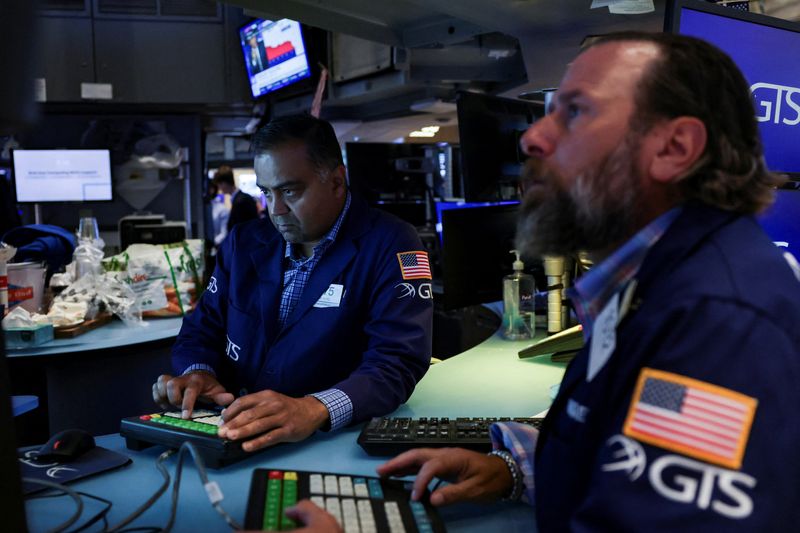IonQ CRO Alameddine Rima sells $4.6m in shares
Investing.com -- UBS expects global equities to remain supported through year-end, with the MSCI All-Country World Equity Index (ACWI) seen edging higher despite limited near-term catalysts.
The bank’s base case sees the ACWI climbing to 1,150 by December 2025, compared with 1,129 as of August 20.
UBS strategists said that recent gains have been driven by trade de-escalation, strong second-quarter earnings, and expectations for Federal Reserve rate cuts.
While valuations now reflect a high level of optimism, the strategists “expect global equities to rise over the next 12 months.”
“Positive economic growth, robust earnings, strong structural trends, and the prospect of central bank rate cuts continue to provide a constructive backdrop,” a team of Fabian Deriaz and Ulrike Hoffmann-Burchardi said in a Thursday note.
UBS remains Neutral on global equities in the short term, citing the lack of immediate drivers after a run of positive developments.
Still, the bank advises investors to treat periods of volatility as opportunities to build positions in structural growth themes such as Artificial Intelligence (AI), Power and resources, and Longevity—what it calls its “Transformational Innovation Opportunities (TRIOs).”
In its base case, UBS sees earnings growth as the main driver of returns over the next year, with forecasts upgraded to mid-to-high single digits for 2025 and 2026.
Technology continues to be favored globally, with additional support expected for U.S. financials, European industrials, and Indian equities in Asia.
Certain risks remain, however. Strategists warned that any disappointment with growth or inflation could weigh on sentiment, given elevated expectations.
At the same time, they see scope for a bull case, where “ample liquidity, the likelihood of Fed cuts, surging AI investment, and positioning that remains far from stretched provide some ingredients for a potential overshoot.”
In such a scenario, the ACWI could reach 1,300 by June 2026.
On the downside, UBS highlighted the risk of tariffs dampening consumer and business spending, or geopolitical tensions escalating, which could drag the index to 820 by mid-2026.
